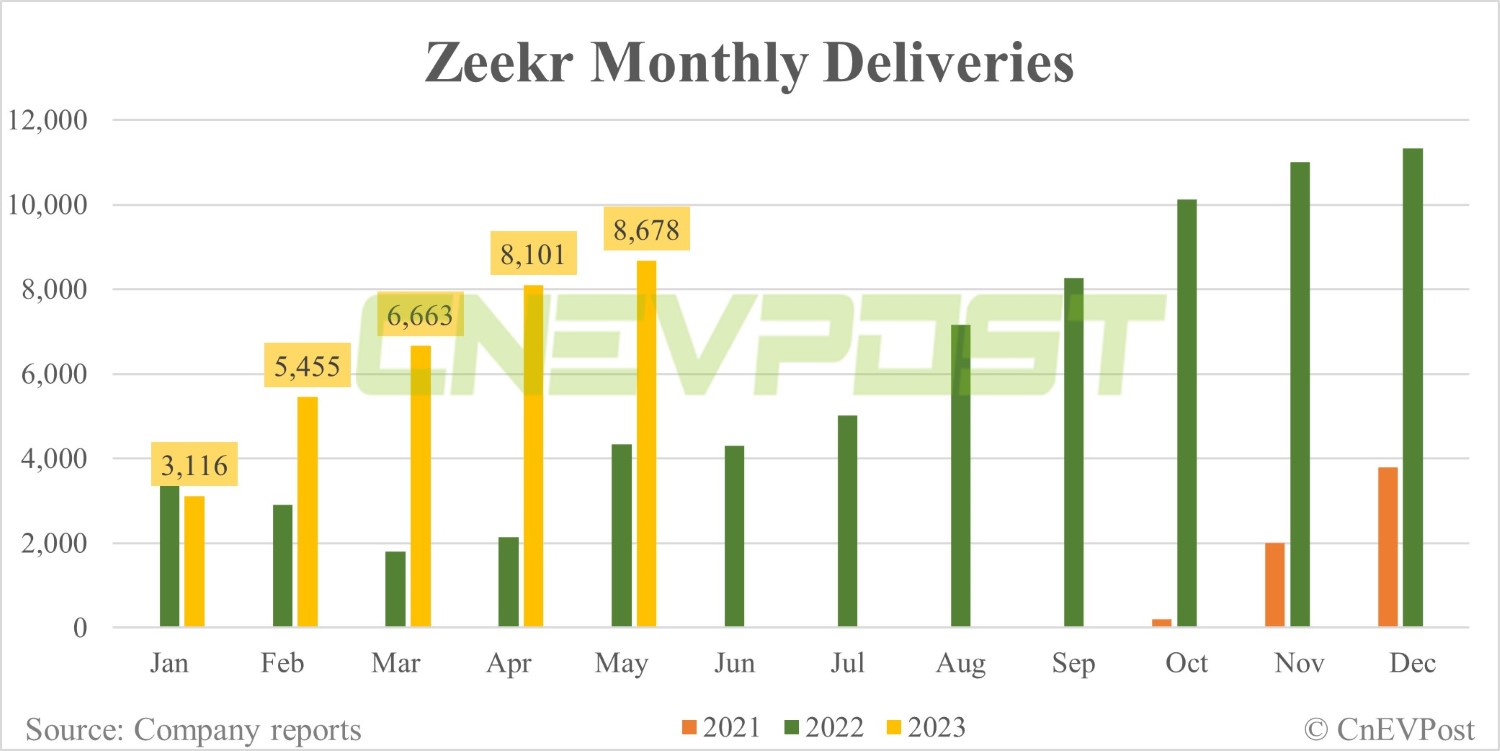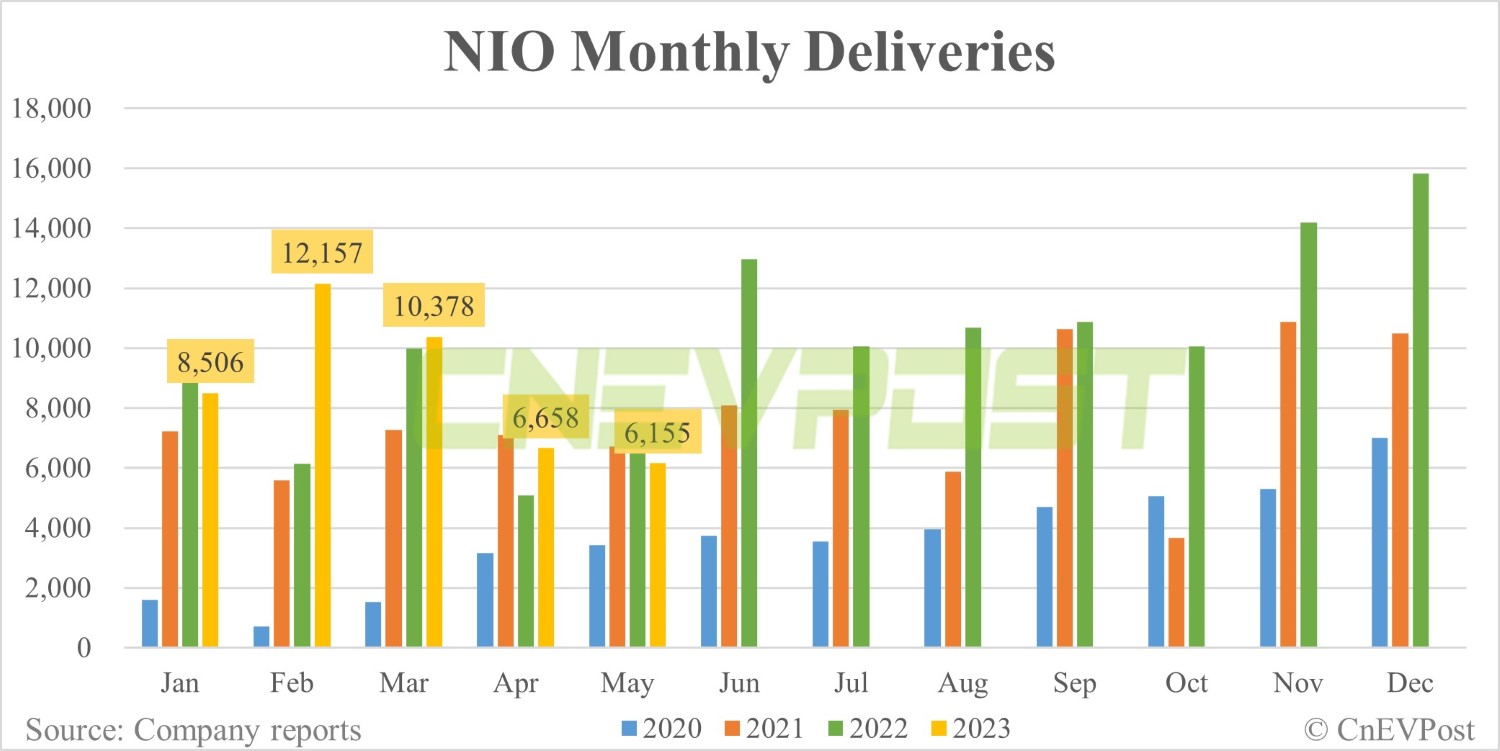From January to May, China's wholesale sales of passenger NEVs are expected to be 2.78 million units, up 46 percent year-on-year, the CPCA said.

China's wholesale sales of passenger new energy vehicles (NEVs) are expected to be 670,000 units in May, up 11 percent from April and up 59 percent year-on-year, the China Passenger Car Association (CPCA) said in a report today.
In April, the 11 manufacturers with more than 10,000 wholesale sales of NEVs contributed 81.1 percent of all wholesale sales, the CPCA said.
These companies are expected to sell 542,000 units in May, and the normal structure would put China's wholesale sales of passenger NEVs in May at around 650,000 units, the CPCA said.
The CPCA gave a higher estimated figure of 670,000 wholesale sales as the development of China's NEV industry continues to consolidate this year, the report said.
In the January-May period, China's wholesale sales of passenger NEVs are expected to be 2.78 million units, up 46 percent year-on-year, according to the report.
NEVs include battery electric vehicles (BEVs), plug-in hybrids (PHEVs), and fuel cell vehicles.
China's new energy passenger vehicle market returned to stronger growth in May, with sales hitting a new high this year, the CPCA said.
As a result of last year's low base and the recent continued strength of China's passenger NEV exports, vehicle companies in the core regions of the NEV industry chain, including Shanghai, performed well, the CPCA said.
Passenger vehicle sales in China are expected to be 23.5 million units in 2023, including 8.5 million NEVs, and penetration is expected to reach 36 percent, the CPCA said, repeating its previous forecast.
In 2022, wholesale sales of passenger NEVs in China were 6.5 million units, up 96.3 percent year-on-year.
Here are the wholesale NEV sales of major automakers in May, as published by the CPCA.
Tesla sells 77,695 China-made vehicles in May, up 2.44% from Apr

The post China NEV wholesale in May at about 670,000 units, CPCA estimates show appeared first on CnEVPost.
For more articles, please visit CnEVPost.
















